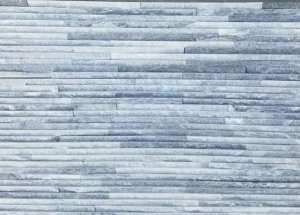Will Mineral Water Cause Kidney Stones?
Kidney stones, a painful health condition, are solid masses formed from minerals and salts in the urine. Many factors can contribute to their development, including diet, hydration habits, genetics, and underlying medical conditions. A common question that arises in this context is whether drinking mineral water can increase the risk of kidney stones.
Mineral water, as its name suggests, is water from a mineral spring that contains various dissolved minerals such as calcium, magnesium, and sodium. These minerals are often beneficial for overall health, contributing to bone strength and digestive function. However, when it comes to kidney stones, the presence of certain minerals can be a double-edged sword.
Calcium, for instance, is a common constituent of kidney stones, particularly calcium oxalate stones. Some studies have suggested that excessive intake of calcium, including that found in mineral water, could potentially increase the risk of these types of stones. However, it's crucial to note that calcium is also essential for bone health and other bodily functions, and moderate consumption is usually not a concern.
On the other hand, magnesium and citrate, which are also present in some mineral waters, can actually help prevent kidney stones. Magnesium inhibits stone formation by binding with oxalates, preventing them from crystallizing into stones Magnesium inhibits stone formation by binding with oxalates, preventing them from crystallizing into stones

Magnesium inhibits stone formation by binding with oxalates, preventing them from crystallizing into stones Magnesium inhibits stone formation by binding with oxalates, preventing them from crystallizing into stones
 will mineral water cause kidney stones
will mineral water cause kidney stones. Citrate, another common mineral in some waters, can also prevent stones by making the urine less acidic and thus less conducive to stone formation.
It's important to differentiate between mineral water and high-sodium bottled water. Sodium can promote dehydration, which is a risk factor for kidney stones. Therefore, choosing low-sodium mineral water may be a wise choice for those susceptible to kidney stones.
In conclusion, the relationship between mineral water and kidney stones is nuanced and depends on the specific mineral content and individual circumstances. Drinking moderate amounts of mineral water with a balanced mineral profile, low in sodium, and rich in magnesium and citrate, might even be protective against kidney stones. However, individuals with a history of kidney stones or other health conditions should consult their healthcare provider for personalized advice. Regular hydration with any type of water is generally beneficial for kidney health, as it helps flush out toxins and prevent stone formation. As with all dietary concerns, moderation and balance are key.

 Magnesium inhibits stone formation by binding with oxalates, preventing them from crystallizing into stones Magnesium inhibits stone formation by binding with oxalates, preventing them from crystallizing into stones
Magnesium inhibits stone formation by binding with oxalates, preventing them from crystallizing into stones Magnesium inhibits stone formation by binding with oxalates, preventing them from crystallizing into stones will mineral water cause kidney stones. Citrate, another common mineral in some waters, can also prevent stones by making the urine less acidic and thus less conducive to stone formation.
It's important to differentiate between mineral water and high-sodium bottled water. Sodium can promote dehydration, which is a risk factor for kidney stones. Therefore, choosing low-sodium mineral water may be a wise choice for those susceptible to kidney stones.
In conclusion, the relationship between mineral water and kidney stones is nuanced and depends on the specific mineral content and individual circumstances. Drinking moderate amounts of mineral water with a balanced mineral profile, low in sodium, and rich in magnesium and citrate, might even be protective against kidney stones. However, individuals with a history of kidney stones or other health conditions should consult their healthcare provider for personalized advice. Regular hydration with any type of water is generally beneficial for kidney health, as it helps flush out toxins and prevent stone formation. As with all dietary concerns, moderation and balance are key.
will mineral water cause kidney stones. Citrate, another common mineral in some waters, can also prevent stones by making the urine less acidic and thus less conducive to stone formation.
It's important to differentiate between mineral water and high-sodium bottled water. Sodium can promote dehydration, which is a risk factor for kidney stones. Therefore, choosing low-sodium mineral water may be a wise choice for those susceptible to kidney stones.
In conclusion, the relationship between mineral water and kidney stones is nuanced and depends on the specific mineral content and individual circumstances. Drinking moderate amounts of mineral water with a balanced mineral profile, low in sodium, and rich in magnesium and citrate, might even be protective against kidney stones. However, individuals with a history of kidney stones or other health conditions should consult their healthcare provider for personalized advice. Regular hydration with any type of water is generally beneficial for kidney health, as it helps flush out toxins and prevent stone formation. As with all dietary concerns, moderation and balance are key.